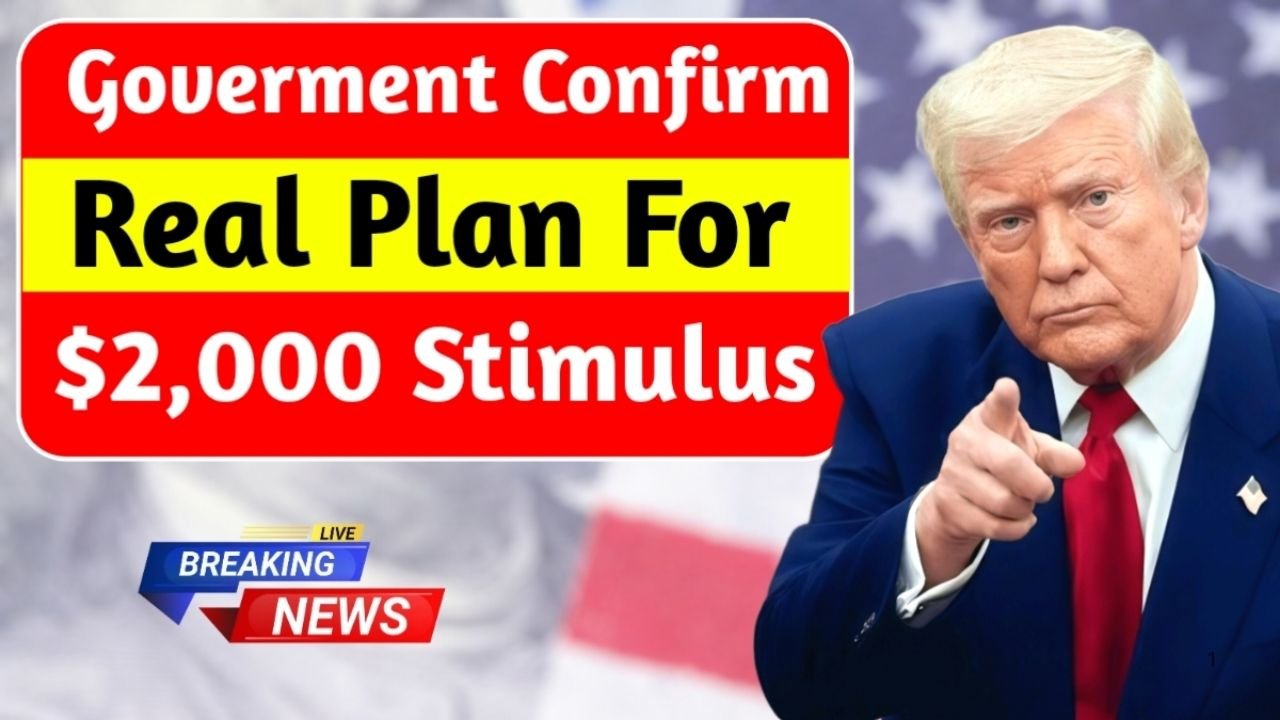Millions of Americans may soon get much-needed financial relief as the U.S. government officially moves the proposed $2,000 stimulus payment into the evaluation stage. With high rent, rising inflation, and increasing household debt, this update has sparked fresh hope for families and individuals waiting for federal assistance. While the plan is not yet approved, officials confirm it is now under serious review—marking the most significant progress in months.
Government’s Review of the $2,000 Stimulus Proposal
Federal officials have confirmed that the proposed payment is currently being analyzed by the Treasury Department and key congressional committees. This marks a shift from informal discussions to active consideration.
What the Evaluation Includes
Treasury analysts are examining:
- Total program cost
- Impact on inflation
- Revenue requirements and budget flexibility
- IRS capacity to distribute payments without delays
Officials stated that the main goal is to ensure the payment can be rolled out quickly—especially after learning lessons from earlier stimulus rounds.
Why Lawmakers Are Considering New Stimulus Support
The push for a new stimulus comes as millions struggle financially. Economic pressure points include:
- High rent across major states
- Rising grocery and utility costs
- Slower wage growth
- Record levels of consumer debt
Economists believe a targeted payment—limited by income and delivered through existing IRS systems—could provide meaningful relief without creating major inflation spikes. This has led to early bipartisan interest, though final approval will depend on upcoming budget discussions.
Expected Eligibility Requirements for the $2,000 Payment
While the government has not released final guidelines, insiders suggest eligibility will closely follow past stimulus programs.
Likely Income Limits
- Single filers: Full payment up to $75,000 income; partial up to $99,000
- Married couples filing jointly: Full payment up to $150,000; partial up to $198,000
- Head of household: Expect similar adjusted thresholds
Groups Expected to Qualify
- Low-income and middle-income households
- Social Security, SSI, SSDI, and VA beneficiaries (if income-eligible)
- Seniors and disabled Americans on fixed income
- Anyone with a valid Social Security number meeting residency rules
Undocumented individuals will likely only qualify if they have valid SSNs and meet the same income criteria.
Expected Payment Timeline and Distribution Method
The timeline heavily depends on how quickly Congress reaches a decision.
If Approved in Late 2025
Payments could begin within 4–6 weeks, thanks to existing IRS systems already used for past stimulus checks.
Distribution Methods
- Direct deposit for those with bank details on file
- Paper checks for those without digital banking
- Prepaid debit cards for select recipients
The government may also relaunch a tracking portal similar to the previous “Get My Payment” tool to help Americans monitor their payment status.
What Happens Next?
Congress will make the final decision. If lawmakers reach a quick agreement, payments could arrive before the end of 2025. If negotiations stall, distribution may shift into early 2026.
For now, the stimulus is still in the planning phase—but the move into official review offers new hope for millions needing financial relief.
FAQs
1. Is the $2,000 stimulus payment approved?
No. The plan is under federal review and still requires Congressional approval.
2. Who is likely to qualify for the full $2,000 payment?
Single filers under $75,000 and married couples under $150,000 will likely qualify based on early drafts.
3. Will Social Security, SSI, SSDI, and VA beneficiaries get the payment?
Yes, if they meet income requirements and are not listed as dependents.
4. How fast will payments arrive once approved?
IRS systems suggest payments may start in 4–6 weeks after approval.
5. Where can people check the latest official updates?
Only rely on the IRS and U.S. Treasury for confirmed information.
Conclusion
The government’s confirmation that the $2,000 stimulus proposal is now under review is a major development for Americans struggling with high living costs. While approval is not guaranteed, the progress signals that lawmakers are seriously considering new financial support. Staying informed through official government channels is the best way to track what happens next—and to prepare for potential payments if Congress gives the final green light.





